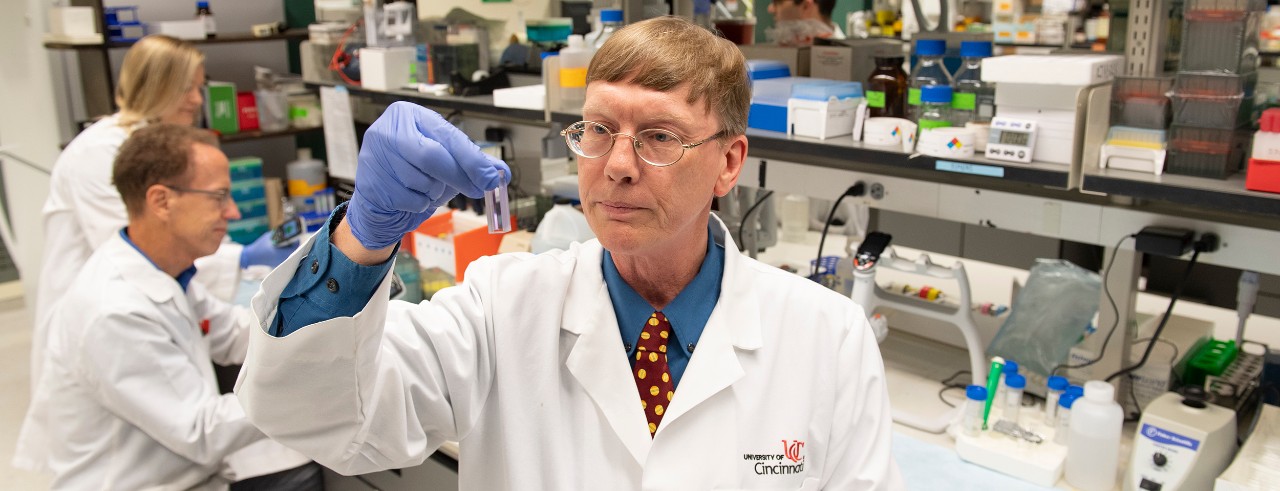
Cincinnati Enquirer: UC College of Medicine launches addiction research center
The center is devoted to the science of addiction and hopes to help end stigma
A research center devoted to the science of addiction and determined to make a national impact has launched at the University of Cincinnati College of Medicine.
The UC Center for Addiction Research is an endeavor "to expand the university’s scope as a national leader in addiction science," officials said.
The center's director is Theresa Winhusen, PhD, vice chair for addiction sciences in the Psychiatry and Behavioral Neurosciences department at the UC College of Medicine.
"This is a chance to take all the work that we've been doing to the next level," says Winhusen, who's been engaged in addiction research for more than 20 years.
Read the full story. [This article is password protected.]
Featured photo of Andrew Norman, PhD, a leader of one of the cores of the Center for Addiction Research, in his lab. Photo credit/Colleen Kelley/UC Creative + Brand
Next Lives Here
The University of Cincinnati is classified as a Research 1 institution by the Carnegie Commission and is ranked in the National Science Foundation's Top-35 public research universities. UC's graduate students and faculty investigate problems and innovate solutions with real-world impact. Next Lives Here.
Related Stories
Doctors prepare for surgeries with 3D-printed organs
April 11, 2025
Meteora3D, a Venture Lab-backed startup, helps surgeons better understand upcoming procedures by designing and developing quick-to-produce, 3D-printed anatomical models.
A 'night on the Serengeti' — in Cincinnati
Event: April 12, 2025 6:30 PM
University of Cincinnati and Village Life Outreach Project celebrate two decades of service to communities in rural Tanzania. The milestone will be honored on April 12 with a vibrant fundraiser titled “Village Life: Night on the Serengeti,” hosted at Cincinnati’s contemporary 21c Museum Hotel. The evening promises Tanzanian cuisine, art, live performance and, most importantly, a renewed call to sustain a mission that has transformed lives across continents.
How color cosmetics merge form with function
April 9, 2025
The University of Cincinnati's Kelly Dobos was a featured expert in a Cosmetics & Toiletries article explaining trends and innovations in color cosmetics.
